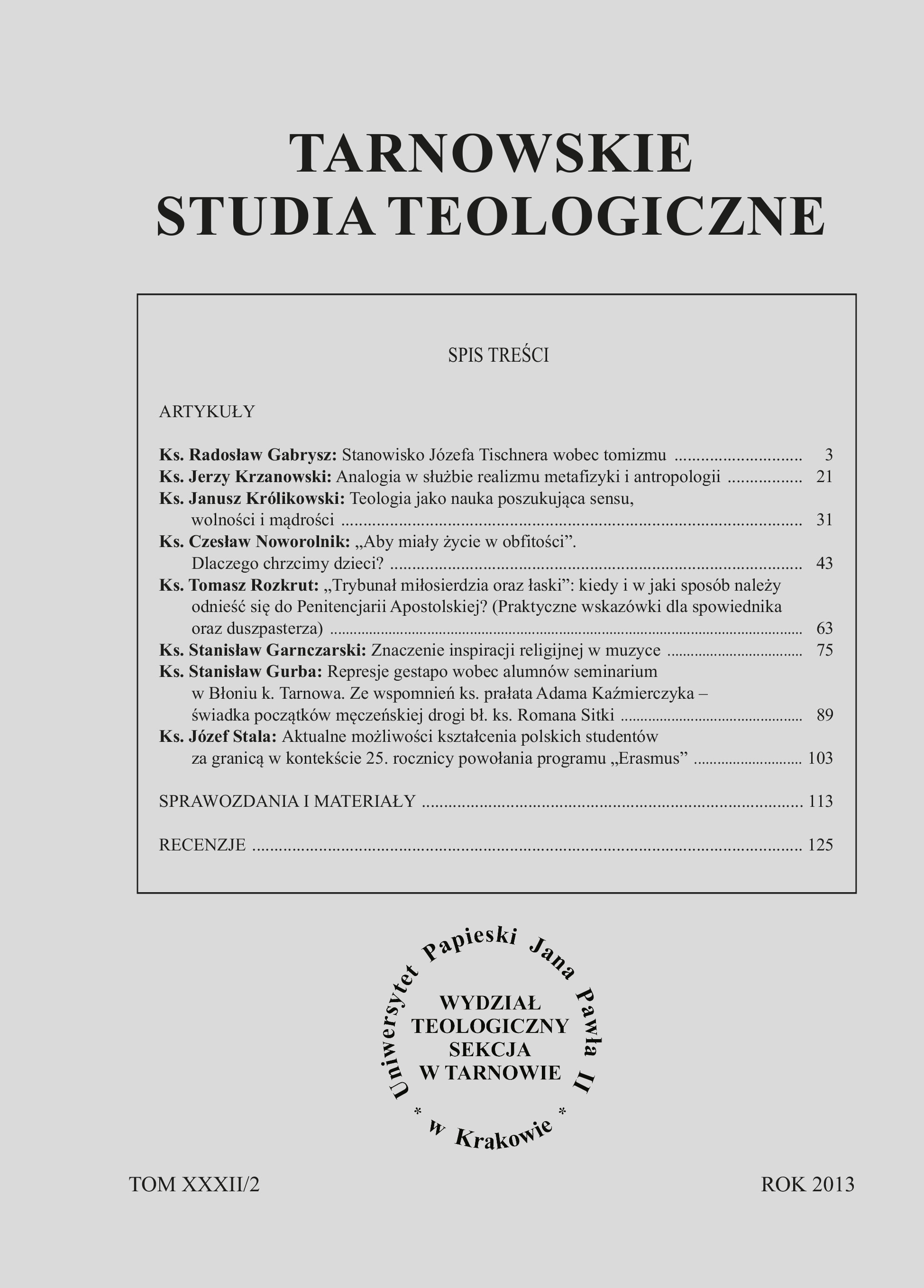Stanowisko Józefa Tischnera wobec tomizmu
DOI:
https://doi.org/10.15633/tts.318Słowa kluczowe:
tomizm, synteza tomistyczna, synteza naukowa, teologia spekulatywna, metafizyka, chrześcijaństwo, objawienie chrześcijańskieAbstrakt
Famous article of Tischner “The Decline of Christianity Thomist”, published on pages of the monthly the “Znak” in 1970 evoked the wave of interesting polemics in the Polish philosophical environment. They concerned on one hand the role of the Thomism in contemporary theology, on the other the criticism of the position of Tischner. Very author responded to a challenge criticizing the Thomism as the synthesis of data of the Revelation and Aristotelian philosophy. Because this merger is seizing character of both above ingredients – compared to two colours mixt with oneself and in the end constituting the new colour. Thomistic synthesis, from Tischner’s perspective, came into existence in the crowning moment of the history of the Christianity in Europe. She agreed on contemporary models of the scientific nature, culture, forms of the statehood. However in our times dangerous of it is a result uniquely thomistic “becoming poor” not to say “perversion” Christianities. And so in our times would the new synthesis be desired? Through the division of the learning, took the place of universal syntheses different “microsystems”, and very idea of the synthesis turned out to be too ambiguous, and for her conditions are impossible to fulfil. Valuable however rapidly of Tischner there would be rather a hermeneutic proposal of Paul of Ricoeur indeed to concentrate on the text of the christian revelation without the thomistic dogmatism here. Hence also, however dusk of the Thomism is opening intriguing and the philosophical latest perspectives for the Christianity.Pobrania
Opublikowane
2013-12-31
Numer
Dział
Artykuły
Licencja
Prawa autorskie (c) 2013 Radosław Gabrysz

Utwór dostępny jest na licencji Creative Commons Uznanie autorstwa 4.0 Międzynarodowe.
Autorzy publikujący w czasopiśmie udzielają jego wydawcy zgody o następującej treści:
- Autor zachowuje autorskie prawa majątkowe do utworu, a jednocześnie udziela wydawcy czasopisma zgody na jego pierwszą publikację w wersji drukowanej i wersji online na licencji Creative Commons Uznanie autorstwa 4.0 Międzynarodowe oraz zgody na wykonywanie opracowań, w tym przekładów.
- Autor ma możliwość udzielania zgody niewyłącznej na opublikowanie utworu w wersji, która ukazała się w czasopiśmie (np. zamieszczenia go w repozytorium instytucjonalnym lub opublikowania w książce), wraz z informacją o jego pierwszej publikacji w czasopiśmie.
- Autor może umieścić swój utwór online (np. w repozytorium instytucjonalnym lub na swojej stronie internetowej) jeszcze przed zgłoszeniem utworu do czasopisma.

